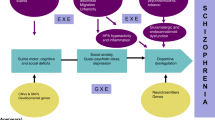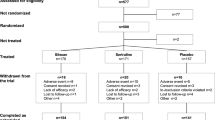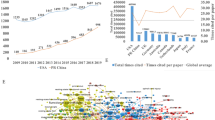Abstract
Searching for genetic causes of depressive and anxiety disorders has been going on for about three decades. However, the accumulated experimental data do not allow us to come to a final conclusion about the influence of certain genes on the risk of the disease and the severity of its course. Most studies of candidate genes were carried out using samples of patients with different nosological forms of depression. The aim of our work was to check whether the previously found associations are common for all depressive spectrum disorders or there are loci that specifically affect the risk of developing a certain disease. The study involved patients with disorders characterized by severe depressive symptoms (n = 357). Patients were divided into three samples according to the diagnosis: depressive episode (DE), recurrent depression (RD), and mixed anxiety and depressive disorder (MADD). The polymorphic locus 40 bp VNTR of gene SLC6A3 was associated with all studied disorders; the LL genotype was less common in patients and was associated with a low risk of disease. The polymorphism 120 bp VNTR in gene DRD4 was associated with RD and MADD. The rs6311 locus of gene HTR2A was associated with DE and MADD. A specific genetic risk factor for RD in the studied samples was the rs53576 polymorphism of gene OXTR. The genotype homozygous for the minor allele (AA) was associated with a low risk of RD. None of the studied polymorphic loci influenced the severity of depression symptoms. The loci rs6311 of gene HTR2A and 120 bp VNTR of gene DRD4 were associated with symptoms of situational and personality anxiety. The severity of situational anxiety symptoms was also influenced by the loci rs53576 of gene OXTR and 16–17 bp VNTR of gene SLC6A4.



Similar content being viewed by others
REFERENCES
Van Ness, S.H., Owens, M.J. and Kilts, C.D., The variable number of tandem repeats element in DAT1 regulates in vitro dopamine transporter density, BMC Genet., 2005, no. 6, p. 55. https://doi.org/10.1186/1471-2156-6-55
Inoue-Murayama, M., Adachia, S., Mishima, N., et al., Variation of variable number of tandem repeat sequences in the 3'-untranslated region of primate dopamine transporter genes that affects reporter gene expression, Neurosci. Lett., 2002, vol. 334, no. 3, pp. 206—210. https://doi.org/10.1016/S0304-3940(02)01125-4
Schoots, O. and Van Tol, H.H., The human dopamine D4 receptor repeat sequences modulate expression, Pharmacogenomics J., 2003, vol. 3, no. 6, pp. 343—348. https://doi.org/10.1038/sj.tpj.6500208
D’Souza, U.M., Russa, C., Tahiret, E., et al., Functional effects of a tandem duplication polymorphism in the 5'flanking region of the DRD4 gene, Biol. Psychiatry, 2004, vol. 56, no. 9, pp. 691—697. https://doi.org/10.1016/j.biopsych.2004.08.008
Noble, E.P., Blum, K., Ritchie, T., et al., Allelic association of the D2 dopamine receptor gene with receptor-binding characteristics in alcoholism, Arch. Gen. Psychiatry, 1991, vol. 48, no. 7, pp. 648—654. https://doi.org/10.1001/archpsyc.1991.01810310066012
Lachman, H.M., Papolos, D.F., Saito, T., et al., Human catechol-O-methyltransferase pharmacogenetics: description of a functional polymorphism and its potential application to neuropsychiatric disorders, Pharmacogenetics, 1996, vol. 6, no. 3, pp. 243—250. https://doi.org/10.1097/00008571-199606000-00007
Heils, A., Mossner, R., Lesch, K.P., et al., The human serotonin transporter gene polymorphism—basic research and clinical implications, J. Neural. Transm. (Vienna), 1997, vol. 104, no. 10, pp. 1005—1014.
Hu, X.Z., Lipsky, R.H., Zhu, G., et al., Serotonin transporter promoter gain-of-function genotypes are linked to obsessive-compulsive disorder, Am. J. Hum. Genet., 2006, vol. 78, no. 5, pp. 815—826. https://doi.org/10.1086/503850
MacKenzie, A. and Quinn, J., A serotonin transporter gene intron 2 polymorphic region, correlated with affective disorders, has allele-dependent differential enhancer-like properties in the mouse embryo, Proc. Natl. Acad. Sci. U.S.A., 1999, vol. 96, no. 26, pp. 15251—15255. https://doi.org/10.1073/pnas.96.26.15251
Lemonde, S., Turecki, G., Bakish, D., et al., Impaired repression at a 5-hydroxytryptamine 1A receptor gene polymorphism associated with major depression and suicide, J. Neurosci., 2003, vol. 23, no. 25, pp. 8788—8799. https://doi.org/10.1523/JNEUROSCI.23-25-08788.2003
Czesak, M., Lemonde, S., Peterson, E.A., et al., Cell-specific repressor or enhancer activities of Deaf-1 at a serotonin 1A receptor gene polymorphism, J. Neurosci., 2006, vol. 26, no. 6, pp. 1864—1871. https://doi.org/10.1523/JNEUROSCI.2643-05.2006
Duan, J., Sanders, A.R., Molen, J.E., et al., Polymorphisms in the 5'-untranslated region of the human serotonin receptor 1B (HTR1B) gene affect gene expression, Mol. Psychiatry, 2003, vol. 8, no. 11, pp. 901—910. https://doi.org/10.1038/sj.mp.4001403
Parsons, M.J., D’Souza, U.M., Arranzet, M.J., et al., The –1438A/G polymorphism in the 5-hydroxytryptamine type 2A receptor gene affects promoter activity, Biol. Psychiatry, 2004, vol. 56, no. 6, pp. 406—410. https://doi.org/10.1016/j.biopsych.2004.06.020
Bielinski, M., Jaracz, M., Lesiewska, N., et al., Association between COMT Val158Met and DAT1 polymorphisms and depressive symptoms in the obese population, Neuropsychiatr. Dis. Treat., 2017, no. 13, pp. 2221—2229. https://doi.org/10.2147/NDT.S138565
Lai, J.H., Zhuab, Y.S., Huoet, Z.H., et al., Association study of polymorphisms in the promoter region of DRD4 with schizophrenia, depression, and heroin addiction, Brain Res., 2010, no. 1359, pp. 227—232. https://doi.org/10.1016/j.brainres.2010.08.064
Zhao, X., Sun, L., Sun, Y.H., et al., Association of HTR2A T102C and A-1438G polymorphisms with susceptibility to major depressive disorder: a meta-analysis, Neurol. Sci., 2014, vol. 35, no. 12, pp. 1857—1866. https://doi.org/10.1007/s10072-014-1970-7
Lenze, E.J., Shardell, M., Ferrell, R.E., et al., Association of serotonin-1A and 2A receptor promoter polymorphisms with depressive symptoms and functional recovery in elderly persons after hip fracture, J. Affective Disord., 2008, vol. 111, no. 1, pp. 61—66. https://doi.org/10.1016/j.jad.2008.02.005
Molina, E., Cervilla, J., Rivera, M., et al., Polymorphic variation at the serotonin 1-A receptor gene is associated with comorbid depression and generalized anxiety, Psychiatr. Genet., 2011, vol. 21, no. 4, pp. 195—201. https://doi.org/10.1097/YPG.0b013e3283457a48
Rafikova, E.I., Ryskov, A.P., and Vasilyev, V.A., Genetics of depressive disorders: candidate genes and genome-wide association studies, Russ. J. Genet., 2020, vol. 56, no. 8, pp. 903—915. https://doi.org/10.1134/S1022795420080116
Na, K.S., D’Souza, U.M., Arranz, M.J., et al., Interaction effects of oxytocin receptor gene polymorphism and depression on hippocampal volume, Psychiatry Res. Neuroimaging, 2018, vol. 282, pp. 18—23. https://doi.org/10.1016/j.pscychresns.2018.10.004
Costa, B., Pini, S., Gabelloni, P., et al., Oxytocin receptor polymorphisms and adult attachment style in patients with depression, Psychoneuroendocrinology, 2009, vol. 34, no. 10, pp. 1506—1514. https://doi.org/10.1016/j.psyneuen.2009.05.006
Rafikova, E.I., Shibalev, D.V., Shadrina, M.I., Slominsky, P.A., Guekht, A.B., Ryskov, A.P., and Vasilyev, V.A., Influence of polymorphic gene variants of the dopaminergic system on the risk of disorders with depressive symptoms, Russ. J. Genet., 2021, vol. 57, no. 8, pp. 942—948. https://doi.org/10.1134/S1022795421070115
Sukhodolskaya, E.M., Fehretdinova, D.I., Shibalev, D.V., et al., Polymorphisms of dopamine receptor genes DRD2 and DRD4 in African populations of Hadza and Datoga differing in the level of culturally permitted aggression, Ann. Hum. Genet., 2018, vol. 82, no. 6, pp. 407—414. https://doi.org/10.1111/ahg.12263
Fehretdinova, D.I., Sukhodolskaya, E.M., Shibalev, D.V., et al., Polymorphism of the two genes encoding catecholamine degradation enzymes (COMT and MAOA) in the Hadza and Datoga African ethnic populations, Mol. Genet., Microbiol. Virol., 2018, vol. 33, no. 3, pp. 195—200. https://doi.org/10.3103/S0891416818030035
Sukhodol’skaya, E.M., Vasil’ev, V.A., Shibalev, D.V., et al., 3′-UTR polymorphism of dopamine transporter gene in Hadza and Datoga males, Mol. Biol. (Moscow), 2014, vol. 48, no. 2, pp. 254—257. https://doi.org/10.1134/S0026893314020174
Funding
The work was carried out at the facilities of the Center for Shared Use of the Institute of Gene Biology of the Russian Academy of Sciences with the support of grants from the Russian Foundation for Basic Research (RFBR) nos. 19-04-00383, 17-29-02203-ofi-m, and 19-015-00380.
Author information
Authors and Affiliations
Corresponding author
Ethics declarations
Conflict of interest. The authors declare that they have no conflict of interest.
Statement of compliance with standards of research involving humans as subjects. The study was approved by the Ethics Committee of the Institute of Molecular Genetics. Informed consent was obtained from all patients.
Supplementary Information
Rights and permissions
About this article
Cite this article
Rafikova, E.I., Shibalev, D.V., Shadrina, M.I. et al. Common and Specific Genetic Risk Factors for Three Disorders with Depressive Symptoms. Russ J Genet 58, 65–72 (2022). https://doi.org/10.1134/S1022795422010100
Received:
Revised:
Accepted:
Published:
Issue Date:
DOI: https://doi.org/10.1134/S1022795422010100




